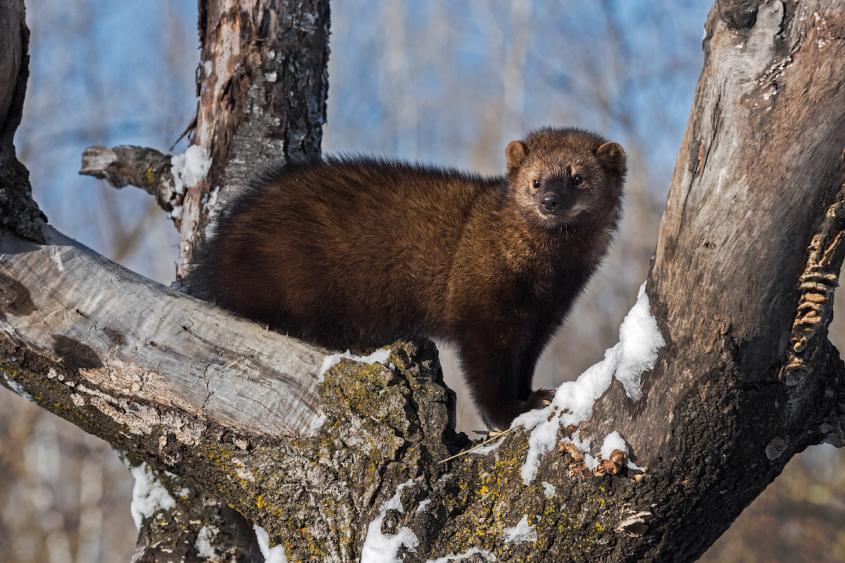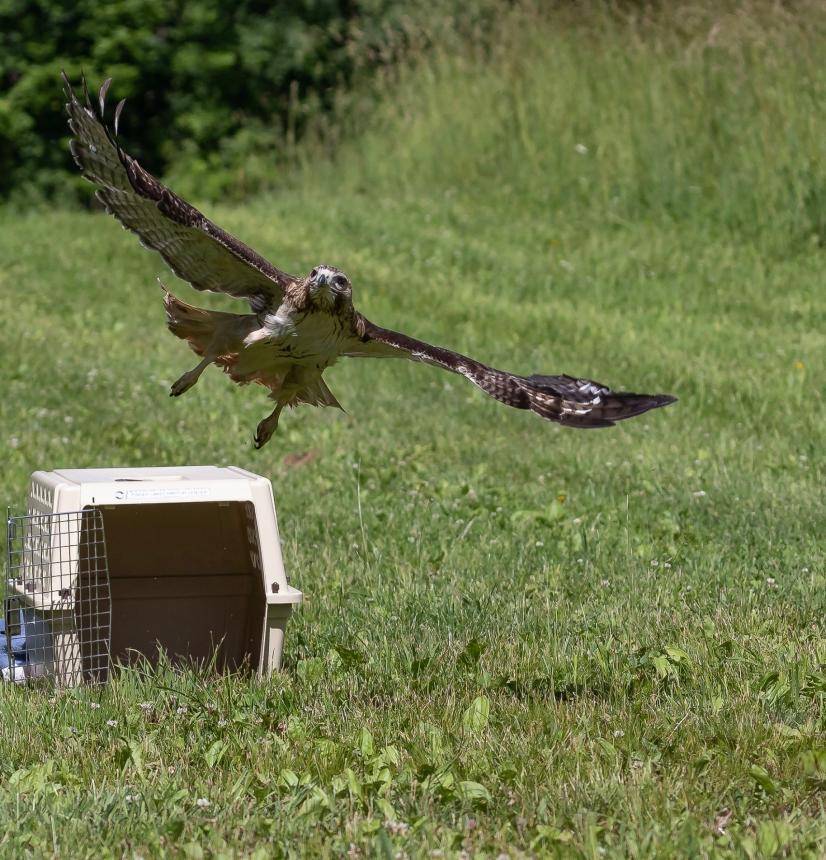In the News

January 03, 2022
The New York State Department of Environmental Conservation recently renewed the New York State Wildlife Health Program for $6.4 million over five years. This partnership has enabled Cornell to work with the state’s wildlife biologists on threats that affect all of New York's wildlife.

For Your Information
October 07, 2021
By analyzing case records, Cornell researchers helped clarify and quantify the causes for wildlife rehabilitation, species involved, and treatment outcomes.

September 07, 2021
By testing easier-to-study coyotes, Cornell researchers, in collaboration with the Cheyenne River Sioux tribe, have identified a range of lethal diseases threatening black-footed ferrets – one of the most endangered animals in North America.

August 16, 2021
Ten longtime TWS members have been named TWS Fellows for 2021, including Cornell's Dr. Krysten Schuler. The TWS Fellows Award is given out each year to individuals who have “distinguished themselves through exceptional service” to the profession and have been members of the Society for at least 10 years.

June 08, 2021
Chronic wasting disease is a contagious and fatal disease affecting cervids (deer, moose, reindeer, elk). Cornell Wildlife Disease Ecologist Dr. Krysten Schuler asks New Yorkers to be on the lookout for cases of chronic wasting disease among deer.

May 21, 2021
The third Friday of May is Endangered Species Day. Primarily as a result of human activities, our planet’s biodiversity is shrinking at an unprecedented rate. The Cornell Wildlife Health Center is proud to support a diverse range of species and ecosystems through our work.

Announcement
March 19, 2021
Chronic wasting disease is a progressive, fatal, degenerative neurological disease of captive and free ranging deer, elk, and moose. The Cornell Wildlife Health Lab received a grant to assess and quantify risk factors for the introduction of chronic wasting disease in Virginia and to design a state-wide surveillance plan.

For Your Information
January 20, 2021
As part of the national recovery effort, endangered black-footed ferrets were reintroduced to the Cheyenne River Sioux Reservation in South Dakota in 2000. In an effort to determine possible causes of the population decline after the reintroduction, researchers conducted a pathogen survey using coyotes as a sentinel animal.

November 10, 2020
Cornell researchers participated in an open discussion during the “One Health Perspectives” session as part of the COVID-19 Summit, a two-day event featuring researchers from across Cornell.

July 19, 2020
Rabbit Hemorrhagic Disease Virus 2 has been rapidly spreading across the western half of the United States, and Cornell's Dr. Krysten Schuler advises not handling wild rabbits at this time.
